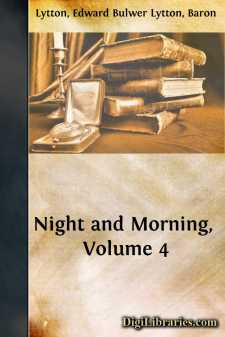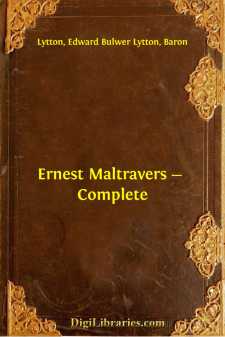Categories
- Antiques & Collectibles 13
- Architecture 36
- Art 48
- Bibles 22
- Biography & Autobiography 813
- Body, Mind & Spirit 142
- Business & Economics 28
- Children's Books 17
- Children's Fiction 14
- Computers 4
- Cooking 94
- Crafts & Hobbies 4
- Drama 346
- Education 46
- Family & Relationships 57
- Fiction 11829
- Games 19
- Gardening 17
- Health & Fitness 34
- History 1377
- House & Home 1
- Humor 147
- Juvenile Fiction 1873
- Juvenile Nonfiction 202
- Language Arts & Disciplines 88
- Law 16
- Literary Collections 686
- Literary Criticism 179
- Mathematics 13
- Medical 41
- Music 40
- Nature 179
- Non-Classifiable 1768
- Performing Arts 7
- Periodicals 1453
- Philosophy 64
- Photography 2
- Poetry 896
- Political Science 203
- Psychology 42
- Reference 154
- Religion 513
- Science 126
- Self-Help 84
- Social Science 81
- Sports & Recreation 34
- Study Aids 3
- Technology & Engineering 59
- Transportation 23
- Travel 463
- True Crime 29
Night and Morning, Volume 5
Description:
Excerpt
CHAPTER I.
"Per ambages et ministeria deorum."—PETRONTUS.
[Through the mysteries and ministerings of the gods.]
Mr. Roger Morton was behind his counter one drizzling, melancholy day. Mr. Roger Morton, alderman, and twice mayor of his native town, was a thriving man. He had grown portly and corpulent. The nightly potations of brandy and water, continued year after year with mechanical perseverance, had deepened the roses on his cheek. Mr. Roger Morton was never intoxicated—he "only made himself comfortable." His constitution was strong; but, somehow or other, his digestion was not as good as it might be. He was certain that something or other disagreed with him. He left off the joint one day—the pudding another. Now he avoided vegetables as poison—and now he submitted with a sigh to the doctor's interdict of his cigar. Mr. Roger Morton never thought of leaving off the brandy and water: and he would have resented as the height of impertinent insinuation any hint upon that score to a man of so sober and respectable a character.
Mr. Roger Morton was seated—for the last four years, ever since his second mayoralty, he had arrogated to himself the dignity of a chair. He received rather than served his customers. The latter task was left to two of his sons. For Tom, after much cogitation, the profession of an apothecary had been selected. Mrs. Morton observed, that it was a genteel business, and Tom had always been a likely lad. And Mr. Roger considered that it would be a great comfort and a great saving to have his medical adviser in his own son.
The other two sons and the various attendants of the shop were plying the profitable trade, as customer after customer, with umbrellas and in pattens, dropped into the tempting shelter—when a man, meanly dressed, and who was somewhat past middle age, with a careworn, hungry face, entered timidly. He waited in patience by the crowded counter, elbowed by sharp-boned and eager spinsters—and how sharp the elbows of spinsters are, no man can tell who has not forced his unwelcome way through the agitated groups in a linendraper's shop!—the man, I say, waited patiently and sadly, till the smallest of the shopboys turned from a lady, who, after much sorting and shading, had finally decided on two yards of lilac-coloured penny riband, and asked, in an insinuating professional tone,—
"What shall I show you, sir?"
"I wish to speak to Mr. Morton. Which is he?"
"Mr. Morton is engaged, sir. I can give you what you want."
"No—it is a matter of business—important business." The boy eyed the napless and dripping hat, the gloveless hands, and the rusty neckcloth of the speaker; and said, as he passed his fingers through a profusion of light curls "Mr. Morton don't attend much to business himself now; but that's he. Any cravats, sir?"
The man made no answer, but moved where, near the window, and chatting with the banker of the town (as the banker tried on a pair of beaver gloves), sat still—after due apology for sitting—Mr....












